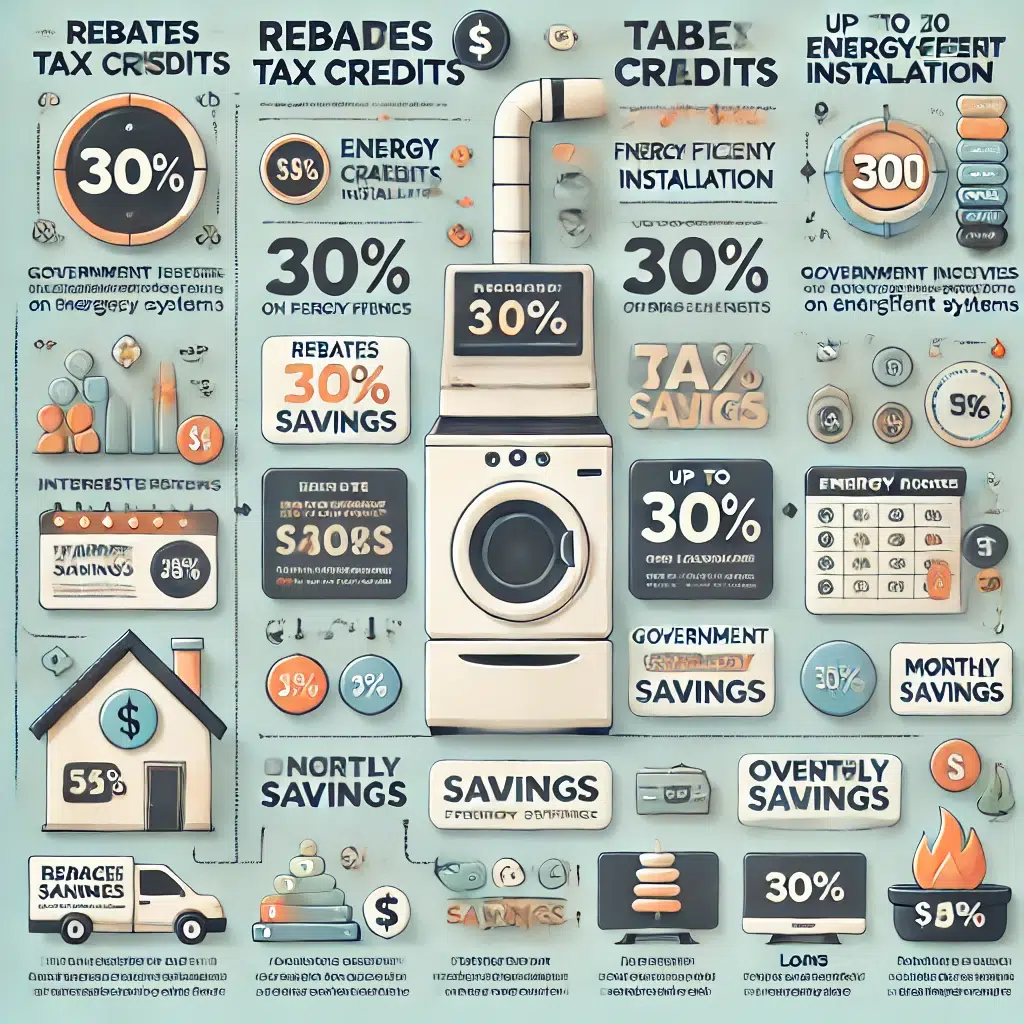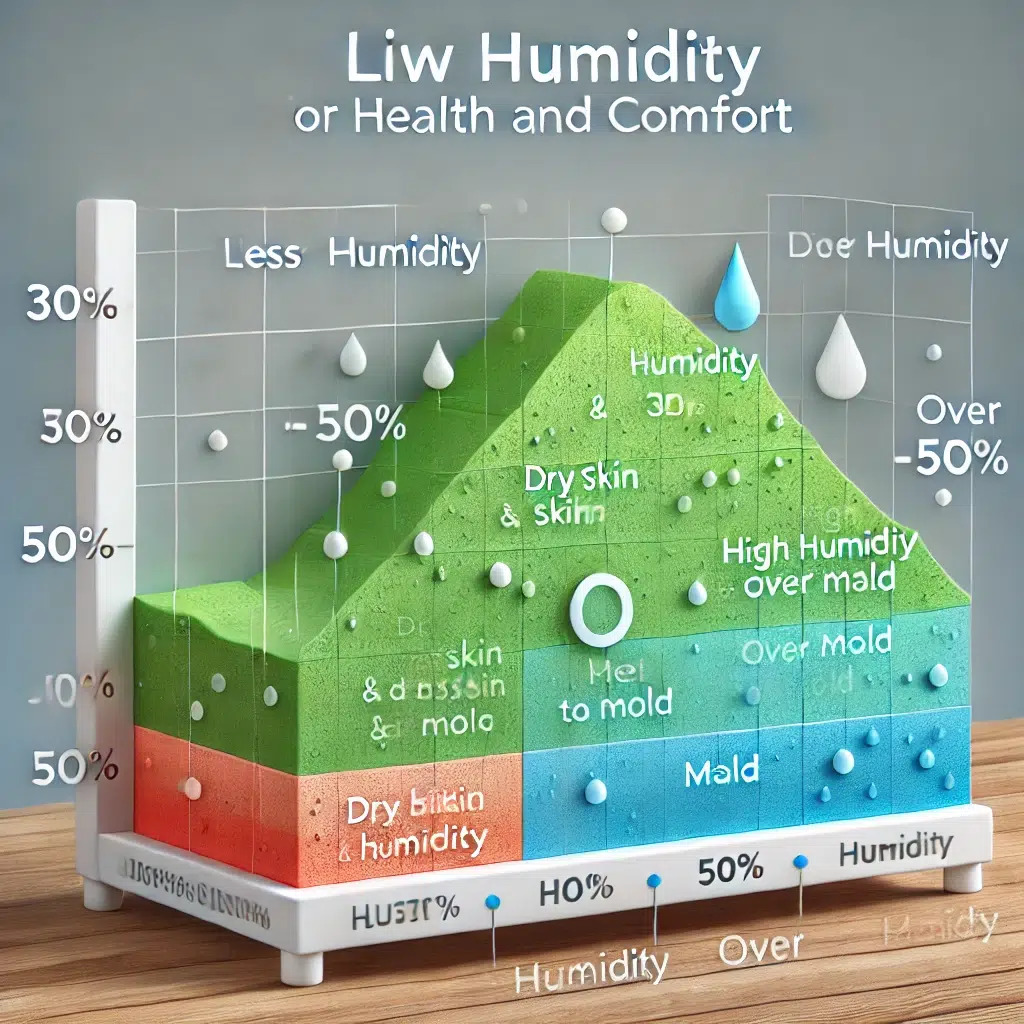Ideal Winter Home Humidity Levels-Beanz Heating Cooling
Maintaining the right humidity levels in your home during winter can make a significant difference in your comfort, health, and energy bills. If you’re wondering what the ideal humidity level should be for your home in the colder months, we’ve got you covered! Why Does Indoor Humidity Matter in Winter? During winter, the cold air…
Maintaining the right humidity levels in your home during winter can make a significant difference in your comfort, health, and energy bills. If you’re wondering what the ideal humidity level should be for your home in the colder months, we’ve got you covered!

Why Does Indoor Humidity Matter in Winter?
During winter, the cold air holds less moisture, leading to dry indoor air. This can result in:
- Dry Skin and Sinus Irritation: Skin cracks, itchy eyes, and sinus problems.
- Respiratory Problems: Viruses spread faster in low-humidity environments.
- Home Damage: Wood floors, furniture, and musical instruments can warp or crack.
- Higher Energy Bills: Dry air feels colder, which may cause you to turn up the heat.
Health Impact of Low Humidity: Dry air can cause respiratory discomfort, especially for those with asthma or allergies. Low moisture levels dry out mucous membranes in your nose and throat, reducing your body’s natural defense against germs. For families with children or seniors, maintaining proper humidity is even more critical for winter wellness.
What Is the Best Humidity Level for Your Home in Winter?
The ideal indoor humidity level during winter is between 30% and 50%, depending on outdoor temperatures:
| Outdoor Temperature | Ideal Indoor Humidity Level |
|---|---|
| 20°F to 40°F | 35% to 40% |
| 0°F to 20°F | 30% to 35% |
| Below 0°F | 30% |
Keeping your home’s humidity within this range ensures comfort while preventing issues like condensation on windows.
Why Condensation Matters: If you notice moisture on your windows, it’s a sign your humidity might be too high. Excess moisture can lead to mold growth, which poses health risks and damages your home’s structure.
How to Know If Your Home Humidity Is Too Low
Here are common signs your humidity levels are too low:
- Static electricity buildup (zaps or clingy clothes)
- Dry, itchy skin or sore throat
- Cracks in wood furniture, flooring, or trim
- Increased colds, flu, or respiratory irritation
Other Signs of Low Humidity:
- Dry pet skin: Pets are also affected by dry air, often showing flaky or irritated skin.
- Worsening allergies: Dust particles and allergens stay airborne longer in dry conditions, worsening symptoms.
SEO Tip: Use a hygrometer to monitor your home’s humidity levels for optimal comfort and health.

5 Effective Ways to Improve Humidity in Your Home
- Install a Humidifier: Whole-home or portable humidifiers can maintain consistent humidity levels.
- Whole-Home Systems: These connect to your HVAC system for automatic adjustments.
- Portable Units: Ideal for single rooms or apartments.
- Seal Air Leaks: Prevent dry, cold air from entering your home by sealing windows, doors, and vents.
- Lower the Thermostat: Overheating dries out the air; keep temperatures moderate to avoid moisture loss.
- Add Houseplants: Plants like peace lilies or spider plants naturally release moisture into the air.
- Pro Tip: Grouping plants together can amplify their humidifying effect.
- Monitor with a Hygrometer: Track humidity levels and adjust as needed using the above methods.
Other Methods to Add Humidity:
- Place water trays near heating vents.
- Hang laundry to air-dry indoors.
Why Proper Humidity Improves Energy Efficiency
Balancing indoor humidity doesn’t just improve comfort—it can also lower energy bills. Dry air feels colder, causing homeowners to use more heat. With proper humidity levels, you can set your thermostat lower without sacrificing comfort.
Energy Efficiency Tip: Consider installing a programmable thermostat to monitor temperature and humidity. This helps balance comfort and energy savings effortlessly.
Frequently Asked Questions About Winter Humidity
Q: Can high humidity in winter damage my home? A: Yes. If your home’s humidity is consistently above 50%, it can cause condensation, mold growth, and wood damage.
Q: How do I measure indoor humidity? A: Use a hygrometer, a small and affordable device that provides accurate humidity readings.
Q: Are whole-home humidifiers worth the cost? A: Absolutely. Whole-home humidifiers offer automatic humidity control, improve energy efficiency, and reduce health concerns caused by dry air.
Why Homeowners Trust Bean’z Heating and Cooling
At Bean’z Heating and Cooling, we specialize in indoor air quality solutions that make your home more comfortable and energy-efficient. From whole-home humidifier installations to HVAC maintenance, we ensure your home is cozy all winter long.
Our Services Include:
- Whole-home humidifier installation
- HVAC inspections and maintenance
- Energy-efficiency upgrades
- Customized air quality solutions
Why Choose Us?
- Experienced, local technicians
- Fast and reliable service
- Affordable, upfront pricing
Schedule Your Winter Home Comfort Check Today
Don’t let dry air affect your comfort this winter.
Call Bean’z Heating and Cooling at [312-593-6334] or visit [beanzheatingandcooling.com] to schedule an appointment today. Let us help you create a healthier, more comfortable home!

